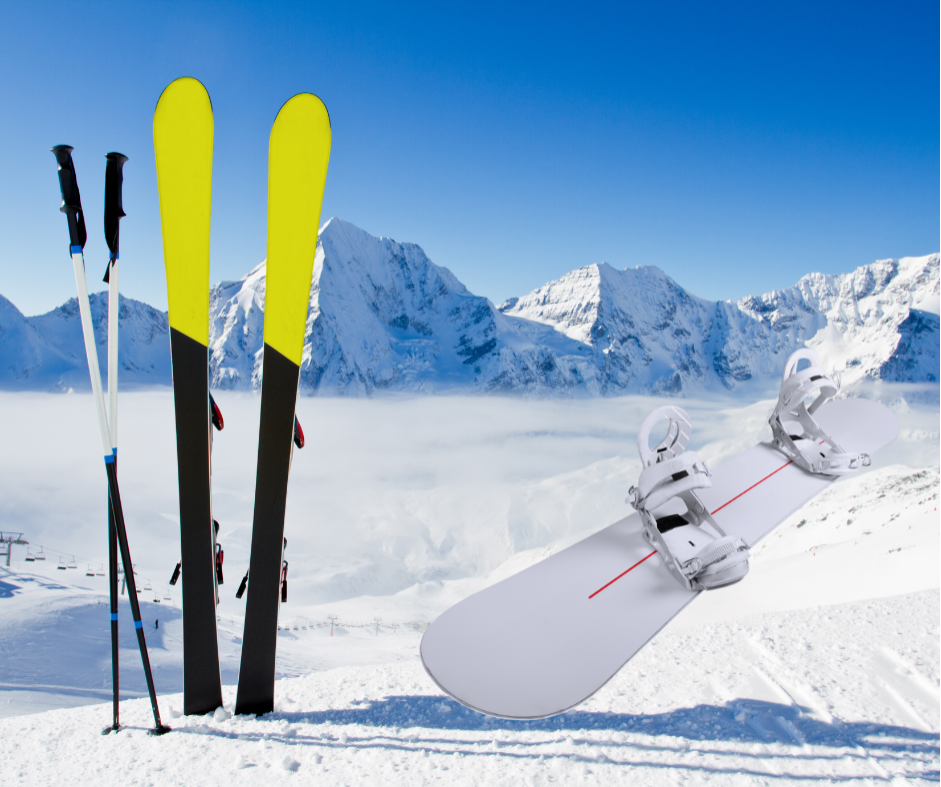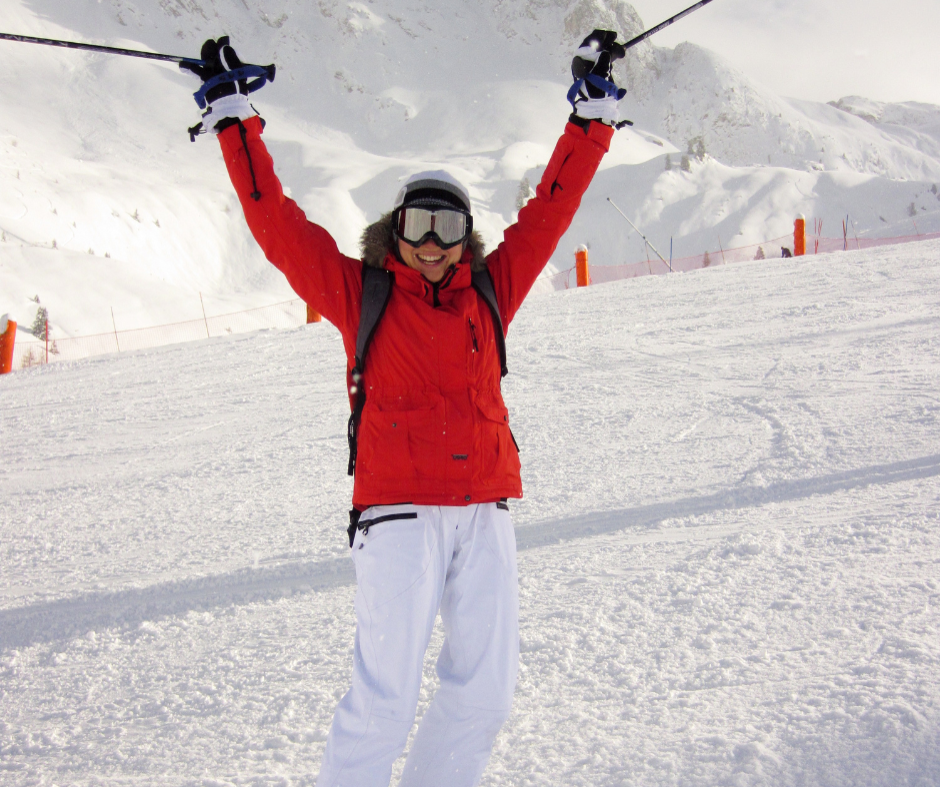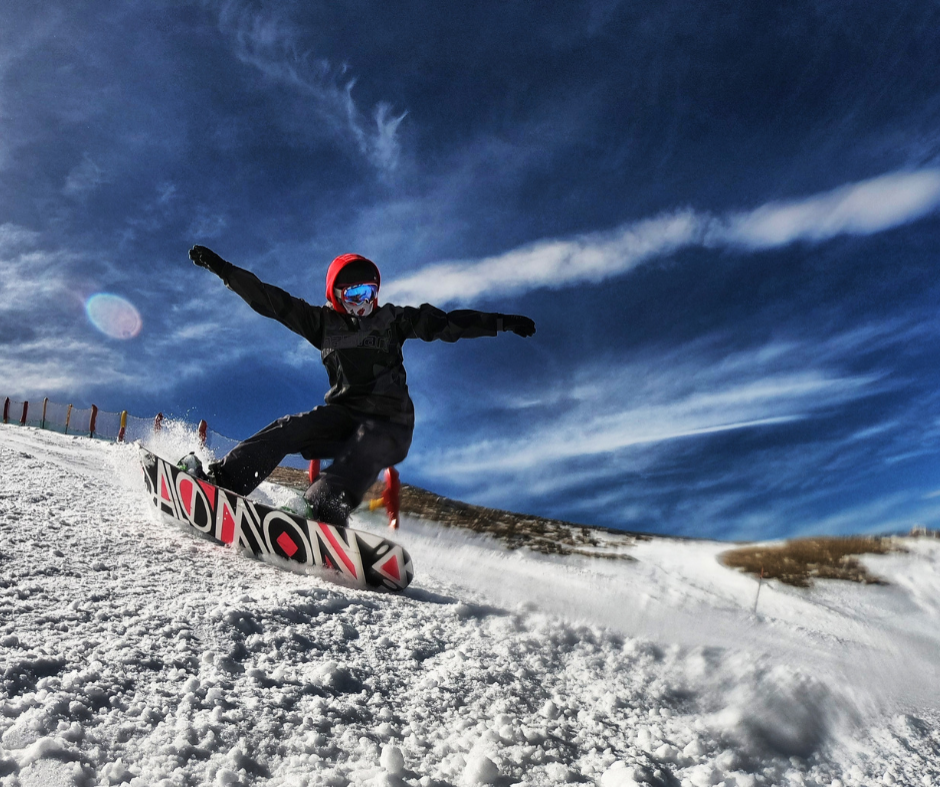Do you want to learn a new winter sport? You're probably split between skiing or snowboarding. Both activities are fantastic for losing weight and having fun, but many beginners don't know which is more straightforward.
In this blog post, we'll take a look at the skills skiing and snowboarding require and reveal the pros and cons of each so that you can make an informed decision about which one is right for you.
Let's dive in.
The Learn/Master Theory
If you've researched skiing and snowboarding, you'll most likely see the same common phrase everywhere; 'Skiing is easier to learn and harder to master. Snowboarding is harder to learn and easy to master.'
Many professionals agree with this theory, as skiing requires less coordination than snowboarding. While skiing, your feet are placed side-by-side on the skis (parallel) and move together down the mountain.
However, once you've learned the basics of skiing and can make parallel turns down most beginner slopes, the real challenge begins. At this point, skiing can be harder to master than snowboarding. Skiers often use their arms more for balance and control than snowboarders, which can be tiring after a long day on the slopes.
In contrast, even though it may be harder to learn at first, snowboarding can be easier to master in the long run. Once you've learned how to turn and stop, you can start linking turns together and carving down the slopes like a pro.
Of course, this is all dependent on the individual. Some people may find skiing easier than snowboarding and vice versa. We'd suggest trying both to see which works better for you so you can focus on building your skills.
Things To Consider
So now you know the basics of skiing and snowboarding, it's time to look at the factors that should contribute to your final decision. There's no right or wrong answer here because it's down to personal choice.
The Gear You Need
Another factor to consider when choosing between skiing or snowboarding is the gear required for each sport. For example, skiing involves a pair of skis, poles, and boots (all available for rent).
Snowboarding, on the other hand, requires a few more items. In addition to the snowboard, you'll need bindings to attach your boots to the board.
You might also want to purchase a helmet and some wrist guards for protection. And if you don't have your boots, you'll need to rent those too.
So if you're looking for a sport that doesn't require a lot of gear, skiing is probably the way to go.
Your Budget
The cost of skiing and snowboarding can also vary quite a bit. If you're planning on hitting the slopes regularly, it's worth investing in your gear to get the most out of it.
However, renting gear is probably your best bet if you're only planning on going on the odd occasion. Skis and snowboards can be expensive, so unless you're sure you'll use them often, it's not worth splurging on your own just yet.
When it comes to lift tickets, skiing and snowboarding typically cost the same amount. However, some resorts may offer discounts for one sport or the other, so it's worth doing your research before you book anything.
Your Ability Level
Of course, another essential factor to consider is your ability level. If you're a complete beginner, we'd recommend starting with skiing. It's generally easier to learn than snowboarding, and you'll be able to build up your confidence on the slopes before moving on to something more challenging.
However, snowboarding might be a better option if you're already comfortable with other sports like skateboarding or surfing. It often comes more naturally to people who are used to balancing on their feet.
Your Reason For Skiing/Snowboarding
Finally, it's essential to think about why you want to learn how to ski or snowboard in the first place. Are you looking for a fast-paced, adrenaline-fueled sport? Or are you just hoping to enjoy some time on the slopes with family and friends?
If you're after an extreme experience, skiing is probably the better option. It's generally more fast-paced than snowboarding, and there are plenty of opportunities to show off your skills (if you're good enough!).
On the other hand, snowboarding might be a better choice if you're hoping to enjoy some time on the slopes and take in the scenery. It's often seen as a more relaxed sport, and you can take your time without worrying about making quick turns.
Plenty of resorts offer slopes for all beginners, and you can find which is best for your needs by using Snowfinders to search for excellent holiday spots.
Fitness Considerations
Skiing and snowboarding require a degree of fitness and resilience, but each uses different muscle sets. When skiing, your legs and core do most of the work. You'll need strong quads, glutes, hamstrings and abdominals to control your skis as you make those carving turns.
Snowboarding also uses your legs and core muscles but in different ways. Your front foot will be angled forward while your back leg remains relatively straight, so you'll need extra flexibility in your hips. As with skiing, you'll also need strong leg muscles to keep yourself balanced on the board.
Safety
Before choosing between skiing or snowboarding, it's essential to consider your safety as a beginner. Skiing might be the better option because it is easier to control your speed and direction.
Snowboarding requires more balance and coordination, but it's safer than skiing in the long term. Research published by The Guardian shows that snowboarders might get into more accidents, but they're a third less likely to die on the slopes, so if you don't mind a few bumps and bruises, snowboarding is the safer option.
Final Thoughts
Well, there you have it; everything you need to know about skiing and snowboarding, including which is more accessible for beginners. There's no right or wrong answer because everyone responds differently to a new sport.
If you're experienced with skateboards, it will be a lot easier for you to master the snowboard, whereas people with superior leg and glute strength might find skiing easier on their bodies.
Our advice is to have fun, experiment and take your time. Learning a new skill always requires some commitment, but it's absolutely worth it when you do.




